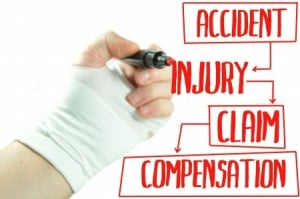
Photo Credit: 123RF Stock Photo[/caption] A number of high profile food recalls have alarmed consumers lately. For instance, at the end of April, Jeni’s Splendid Ice Creams of Ohio voluntarily recalled all of its products amid listeria concerns, and temporarily closed 21 stores in seven cities across the country on Thursday, including stores in Chicago’s Lakeview and Wicker Park neighborhoods. Although no cases of illness were immediately linked to the Jeni’s recall, anyone feeling sick was advised to seek medical attention. According to ABC News, Loyola University Medical Center’s Dr. Christina Long said most people do not get sick from listeria, but young children, the elderly, pregnant women, and people with weak immune systems are the most susceptible to listeria illness, which carries symptoms such as fever, chills, severe headache, and vomiting. Food poisoning, although unpleasant, is actually rather common. Nonetheless, pursing a legal claim for food poisoning may be difficult. In many situations, it is difficult to pinpoint the specific cause of food poisoning. If you are able to prove the specific source of the food poisoning – whether it is the restaurant or food manufacturer – you will need to prove liability in one of the following ways:
- Negligence. If a restaurant or food preparer is negligent in handling the food, you may be able to pursue a personal injury claim. You must be able to prove the following: (1) the defendant was negligent in handling, preparing, or storing the food, (2) the defendant’s negligence caused the food to become contaminated; and (3) the contamination caused your injuries. You will likely need medical and scientific testimony to support your claim.
- Strict Liability. In some cases, a food manufacturer or retailer may be held liable for food poisoning under a theory of strict liability. In Illinois, a seller, manufacturer, or any other entity involved in the chain of distribution may be responsible for a defective product – including contaminated food – if it causes injury or illness. Under strict liability, you must prove: (1) your injury resulted from contaminated food that was manufactured or sold by the defendant; (2) the contaminated food was an unreasonably dangerous; and (3) the food was contaminated at the time the product left the manufacturer’s control. Strict liability for food poisoning most often occurs when in the case of large-scale foodborne illnesses impacting a large number of consumers.
If a food manufacturer becomes aware of a possible food contamination, it has an obligation to notify the public through a food recall. The failure to issue a proper and timely food recall could also result in liability. If you suspect that you or a loved one were the victim of food poisoning as a result of negligence, contact the Chicago injury lawyers at Steinberg, Goodman & Kalish to schedule a free consultation to discuss a possible personal injury or product liability claim. Steinberg Goodman & Kalish (www.sgklawyers.com) is dedicated to protecting victims and their families. We handle medical malpractice, product liability, personal injury, wrongful death, auto accidents, professional negligence, birth trauma, and railroad law matters. Contact us at (888) 325-7299 or (312) 445-9084.

